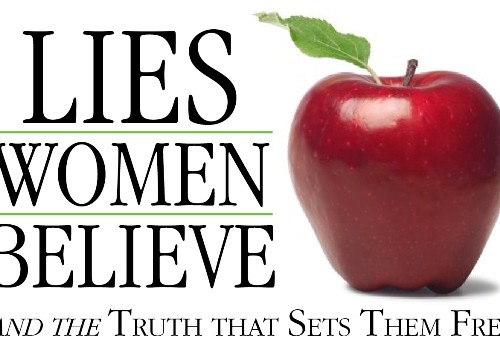This post is the last of three posts in this series. You can fine part one here, and part two here.
IV. Do No Harm
The benefit of framing my sense of ethics around questions such as “is this loving?” and “could this cause harm?” is that many things in my life have become simpler. My life is less fraught with that catch I used to feel when I’d wonder “is this a sin? how can I know if this is a sin? God– will I die if I take communion while not realizing that there’s sin I haven’t repented of because I didn’t realize it was a sin at all?”
Verses like James 4:17 were small comfort when God could strike me down for eating a cracker. I can get the anxiety that prompts a lot of the Boundless reader questions about “CAN I HAVE THE SEX?! CAN WE DO THE KISSING?! OMG HAND HOLDING MAY I TOUCH THEM?!”
However, in some ways, things have gotten a lot more complicated. When the answer to “is this moral?” is no longer an unequivocal “yes” or “no,” but “it depends,” there’s a lot more reflection, self-examination, and attentiveness required of me. However, that is exactly what I love about these questions in regard to a sexual ethic: in order to answer the question I posed in my first post (“could having sex cause harm?”) I have to know myself, I have to understand the situation, and I have to be aware of the other people involved, who may not be just the person I want to have sex with. All of this perhaps conflicting information has to be weighed and balanced.
For me, one of the most important responsibilities of being a sex-positive Christian feminist is education. I believe in giving young people and adults the abilities, information, and tools to make responsible and loving decisions regarding sex.
The most important idea to understand, of course, is consent. I believe in enthusiastic consent, specifically. Someone may be technically consenting, but if they do not seem engaged and willing– even eager and aroused– then I think pursuing sex should be very carefully re-evaluated. Sex should take place between people who want it to happen, not just between someone who wants it and someone who feels ambivalent. There will always be exceptions– libidos don’t always match up; sometimes an asexual person may agree to sex because they like doing that for their partner, even if they’re not particularly interested in sex. I believe that it is eminently loving to prioritize enthusiastic participation all around, but that can be weighed in balance with another person wanting to show love by having sex regardless of how they feel about it.
There’s also other considerations, most of which I believe are rooted in where you are and who you are as a person.
Example: I am extremely monogamous. Every time I enter the mental place of “I am in a committed relationship,” it’s like other people drop off the face of the planet. I can still notice when someone is attractive, of course, or if I find them desirable, but it’s nothing like when I’m single. When I’m in a relationship, entertaining the thought of being in a relationship with someone else is … just bizarre. I can’t even picture it. It’s why I have trouble reading books and watching movies about affairs, or sympathizing with those characters. I loved The Duchess, but even though she’s in a loveless marriage with an asshole, I still couldn’t really wrap my brain around her falling in love with someone else. Or Outlander. I tried reading it and just … couldn’t.
This is something I have always understood about myself, and it is the reason why I am just not interested in casual sex. Depending on the people and the situation, I don’t think there’s anything wrong with it, I just don’t want to experience it. I want sex to take place inside the fence of a monogamous relationship, and would feel weird and uncomfortable with anything else. If you’re the sort of person that doesn’t need the intimate connection of a long-term relationship, awesome, but that should be something you decide by yourself, away from the pressures of hormones and people.
There are other things that need to be thought through and discussed with your potential partner, as well. Timing is an important thing to get right for you, I think, and there’s other extremely realistic questions about contraception and risk and trust. It’s impossible to predict how you or anyone else will respond to any particular event, like sex, until it happens, but it’s still important to evaluate what you think could happen and if you’re ok with those consequences.
There’s a lot of overblown “information” about sex and the effects it can have thanks to purity culture, and that needs to be hashed out, too. Nothing about you can be altered by having sex anymore than eating chocolate cake for the first time changes you as a person. It’s one more experience that makes up who you are, and that’s really it. You’re not guaranteed to be forever in love, it can’t affect your value and worth, and it probably won’t change the course of history, either.
That’s not to say it won’t change anything. You just have to figure out what they could be and if you think those changes are good and loving for you and your partner. There isn’t only one model for this– it could like waiting for marriage to have sex. It could be waiting until you’re engaged, or exclusive, or just in love– or not in love at all. As long as you’re not causing harm and you believe that having sex would be good, beneficial, loving, enjoyable … then in my book, you’re golden.



